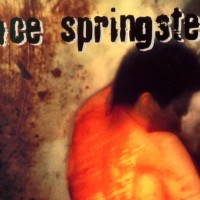I’ve always had a hard time with the word “spiritual.” While I know that there are meanings that do not have religious connotations — “cerebral” and “metaphysical” come to mind — the general usage of the term more commonly leans to the sacred. That tendency of society (or American society, at least) to attach a diety to the word makes me think that the definition I’ve chosen is somehow of lesser value. Curious, since a person’s spiritual life — the life of the mind — should be his own, independent of outside pressures.
Issues like this kept popping into my head as I listened to the songs of Bruce Springsteen’s Wrecking Ball. Not just the songs, but the reactions to them as well. Both the fan and “professional” assessments spoke of Bruce’s use of biblical references, his supposed simplistic lyrics, lack of actual anger (in regard to Bruce’s own judgment that this was “the angriest album he’s ever made”), and motivations. It seemed that people knew, with absolute certainty, what was going on in Springsteen’s thought processes as he wrote these songs.
That angle misses out on a crucial element of the album: the spiritual lives of the song’s characters. From the stereotyped, desperate criminal of “Easy Money” to hopeful citizens of “Rocky Ground” to the lost soul of “Jack Of All Trades” to the pissed off protagonist of “Death To My Hometown,” these are people who are trying to find a way to make their way out of the darkness. Bruce’s motivations did indeed bring us this music, but the stories being told are more naturally thought of as a reflection of the injustices intrinsic to our recent history.
Thematically, Wrecking Ball is split into two parts. The first half — from the defiant “We Take Care Of Our Own” through desolate “This Depression,” gives the soapbox to the down and out, the people dealing with the aftermath of economic and social breakdown. The title track then kicks off part two, which allows a little hope into the discussion.
Springsteen employs many elements both old (protest folk, gospel, an incendiary horn section) and new (electronic beats, samples). There are masterful uses of irony (the cornpone, cartoonish characters of “Easy Money,” thinking crime-laden thoughts but set to such cheerful music), dynamic explosions of emotion (Tom Morello’s “Jack Of All Trades” guitar solo), and gospel tinges as well (the sample of the Alan Lomax-recorded Alabama Sacred Heart Singers that is the underlayment of the stomping “Death To My Hometown,” the entirety of “Rocky Ground.”) Kudos to Bruce (and producer Ron Aniello) for thinking far outside the E Street box. “Rocky Ground” has a visit with soul and gospel, before picking up the surprise element of a short rap by singer Michelle Moore.
As the hope of side two continues to build, we get to the emotional final roar of Clarence Clemons, who brings it during a remake of “Land Of Hope And Dreams.” Even though I knew it was coming, it was still a moment that was difficult to take. Clarence, indeed, lives on. “We Are Alive” runs with that idea of the influential spirit, bringing home the idea of the transformative power of love with a clever quote from Johnny’s Cash’s “Ring Of Fire.”
It’s pretty obvious that Bruce Springsteen wanted to make a statement with Wrecking Ball. What his exact thoughts were as he constructed the songs are mostly beside the point. His characters have been through a lot and are certain to face more outcomes. And yet…they remain hopeful. Their spirituality, however they define it — however we define it, because “they” are us— will guide them.
- Why the Rolling Stones’ Harrowing ‘Gimme Shelter’ is Still Revealing New Depths - November 18, 2024
- How Talking Heads’ ‘Fear of Music’ Opened Up a World of Art and Sound - August 5, 2024
- How Deep Cuts Propelled Bruce Springsteen’s ‘Born in the U.S.A.’ - June 4, 2024


